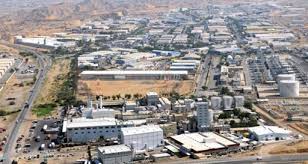Government facilities to enhance investment in Syrian industrial cities.

Engineer Shahoud Abdul Aziz, the General Manager of Sheikh Najjar Industrial City in Aleppo, confirmed that the Ministry of Economy and Foreign Trade, in cooperation with industrial cities and zones administrations, is working on providing facilities to support investment in industrial cities.
Abdul Aziz highlighted the efforts being made to prepare a draft of an investment system that meets the needs of industrial development, in addition to reducing tax burdens and providing legal, financial, and technical support to investors to enhance their projects.
Importing machinery from abroad to industrial cities has been facilitated, with expectations that investment volume this year will reach a minimum of 300%, due to the increasing demand for allocation and construction requests. Several industrialists have started renovating their facilities in the industrial city in preparation for reoperation in the coming months.
Abdul Aziz emphasized that the meeting between the Minister of Economy, Bassel Abd El-Hanan, and the industrialists in the city was fruitful, discussing challenges hindering production, such as electricity prices needing to be aligned with neighboring countries' prices, according to exchange rate fluctuations.
The General Manager described the infrastructure of the industrial city as "dilapidated," especially concerning the electricity network, transformer stations, water pumping, industrial and rainwater drainage systems, as well as the need for road maintenance.
Sheikh Najjar Industrial City in Aleppo is a key pillar supporting the Syrian industrial sector, with 960 operating facilities currently in the city, while 100 other facilities are under preparation. Among the currently operating facilities are 18 chemical facilities, 160 food and engineering facilities, and 44 textile facilities, with 4670 allocated industrial plots, including 1357 under construction.
On another note, industrialists and traders in Aleppo have called on the Syrian government to achieve tax justice and enhance trust between taxpayers and the tax administration, urging the issuance of a comprehensive tax legislation suitable for the country's economic and social situation.
Activists also demanded a review of net profit ratios, cancellation of consumption fees, cessation of tax inquiry laws and combating tax evasion, reduction of income tax on salaries and wages, cancellation of additional fees on electricity bills, and ending double taxation.
In this context, the Syrian Minister of Finance, Mohammed Aba Zaid, announced working on preparing a new tax system that is fairer and more suitable for the economic reality, aiming to achieve tax justice and alleviate financial burdens on citizens and companies.